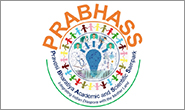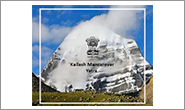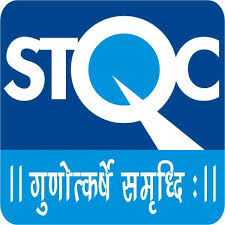First Chinese collection of Rabindranath Tagore's songs released
PTI / Thursday, May 17, 2012
Nobel Laureate Rabindranath Tagore continues to evoke fascination and interest among Chinese, 88 years after his visit to the nation as 50 of his popular songs were translated for the first time into Mandarin with music notes closely resembling the original.
Though several works of Tagore, who is the most widely translated foreign author in Chinese after Shakespeare, were already published, this is the first time that his songs were translated to enable widely spectrum of common public here to understand and appreciate his nuanced poetry.
'The Select Collection of Rabindranath Tagore', translated by a Chinese Bengali specialist Bai Kaiyuan, was launched at the Central Conservatory of Music here today with recital of his songs in both Bengali and Mandarin by Chinese students.
Bai studied Bengali in Bangladesh and worked in the Bengali section of the China Radio International. Noted Chinese musician Liu Yuening transcribed musical scores for the songs.
Besides touring India extensively, Liu also took part in musical concerts along with famous Indian musicians like Mandolin Srinivas.
The translated songs, which included India's national anthem 'Jana Gana Mana', covered subjects like prayers, nature, patriotism, Rainbow, celebrations, reunions and love.
Terming it as an impressive endeavour by the two Chinese, Indian Ambassador to China S Jaishankar said keeping up with Tagore's popularity, a joint production of Tagore's play 'Chitrangada' was enacted at Lanzhou University, recently which was a first such venture in China.
Jaishankar said the Shanghai Consulate of India and Shanghai Municipal Archives also brought a publication on Tagore's visit to China in 1924 and 1929 during which he visited Shanghai and several other cities and widely interacted with top Chinese personalities of that time.
Praising Tagore's songs, Chen Ziming, the President of the World Music Society of Chinese Musicians Association, said his poetry covered various occasions and emotions in life and two of them were selected as national anthems of India and Bangladesh.
Tagore visited China and delivered many speeches, making contributions to cultural exchanges between China and India.
However, his achievements in music have been little known in China until China National Radio started airing them since 1949 after formation of Peoples Republic of China, he said.
"There had been many publications of Tagore's literary works but hardly any musical works and it is the first grand celebration for his achievements in music, which reflected Chinese people's admiration for Tagore and the ever-deepening friendship between China and India," Chen said.
China celebrates Tagore, releases his works in Chinese
Sutirtho Patranobis, Hindustan Times
Beijing,May 18, 2012
Professor Bai Kai Yuan has translated 17000 lines of Rabindranth Tagore’s poems, essays and novels in Chinese. It's probably a first but the translation was never about the number of words or lines: it was because of his love for Tagore and because "he is so jaunopriyo (popular) in China," Bai said in Bengali.
On Thursday, another first was added to his impressive repertoire: a collection of 50 of Tagore's songs translated in Chinese was released at a function in Beijing. While Bai translated the lyrics, the music score was changed into Chinese by Liu Yuening.
This new book of lyrics with scores comes within months of Tagore's play Chitrangada being staged in Chinese at Lanzhou University in northwest China.
Both Bai and Liu have had a long and close relationship with Indian culture and literature.In fact, Liu in 2009 was the first Chinese musician to participate in concerts in 10 Indian cities either solo or along with other Indian musicians. She's credited with creating a unique Indo-China music style using the musical instrument, santoor.
Talking about Tagore, Bai said the poet’s work in Chinese could make his works more popular in China. Currently, he said Tagore and the famous Russian poet and playwright, Alexander Pushkin, are two foreign authors mandatory for senior students in government-run schools.
Thursday’s function was in fact marked by students of Bengali from the Communication University of China singing the Indian poet's songs. GuoShulan, from the Central Conservatory of Music, said songs are very important part of Tagore's body of work. "But till now his songs were not very well known to the Chinese people," she said adding that the new translations could change that.
Indian Ambassador S Jaishankar called it an impressive effort, completed with dedication and effort.
For Bai and many of his young collaborators, the work continues. "We are now translating the complete works of Tagore which comes 18 volumes. We have been working on it, and hope that the book in Chinese can be published by 2016," Bai said.
Clearly, there are more lines to be crossed.
China Daily Sunday Edition
India's Ambassador to China S. Jaishankar hosted the launch of a new book, Rabindranath Tagore's Songs, at Beijing's Central Conservatory of Music last week.
Tagore, India's national poet, is the second-most-translated foreign poet in China after Shakespeare, but his songs are less-known here, the Ambassador said. Jaishankar and Guo Shulan, committee director at the CCM, introduced a program that featured Tagore's works translated into Chinese and set to Chinese musical instruments.





























